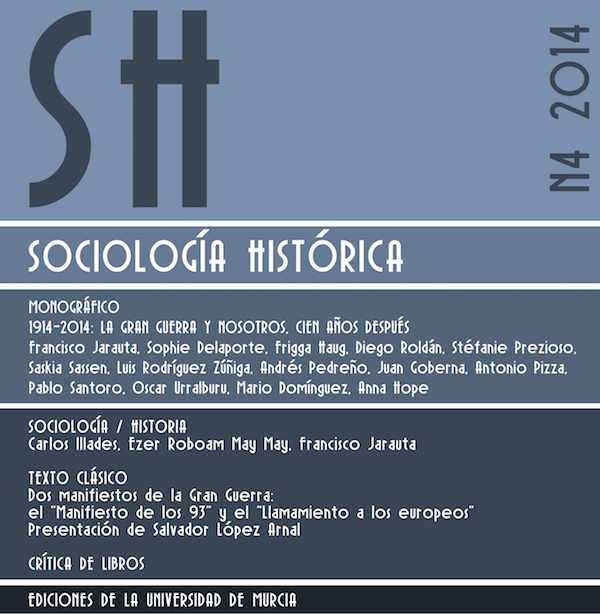Terminology and ideology. Five interpretations of the German conceptual antithesis between Kultur and Zivilisation during the First World War
Abstract
This article attempts to highlight the role of ideology in the semantic evolution of "culture" and "civilization", two key terms in contemporary intellectual history. The author has chosen for the purpose a particular language, German, and a specific historical period, the First World War, since it is then when Kultur and Zivilisation became fighting words. The second part of the paper focuses on the analysis of the causes which, according to the main authors who have dealt with the topic, have triggered the genesis, development and survival of the conceptual opposition between the two terms in German. Reference will be made firstly to the antithetical tendency typical of the German language; secondly, to the importance of the model of cultura animi; thirdly, to the division of both concepts into two systems of historically divergent thinking (German, on the one hand, and Anglo-Saxon and French, on the other); fourthly, to other causes of political and social nature; and finally, to the role of the First World War itself in the final idealization of the term Kultur and the consequent undervaluation of Zivilisation. The article concludes with a brief section in which the apparent specificity of this conceptual antithesis in light of the history of the humanities and social sciences is highlighted, given the scarce influence or semantic transfer exerted on the same conceptual equivalence in English or French.Downloads
-
Abstract1808
-
PDF (Español (España))473
Las obras que se publican en esta revista están sujetas a los siguientes términos:
1. El Servicio de Publicaciones de la Universidad de Murcia (la editorial) conserva los derechos patrimoniales (copyright) de las obras publicadas, y favorece y permite la reutilización de las mismas bajo la licencia de uso indicada en el punto 2.
2. Las obras se publican en la edición electrónica de la revista bajo una licencia Creative Commons Reconocimiento-NoComercial-SinObraDerivada 4.0 España (texto legal). Se pueden copiar, usar, difundir, transmitir y exponer públicamente, siempre que: i) se cite la autoría y la fuente original de su publicación (revista, editorial y URL de la obra); ii) no se usen para fines comerciales; iii) se mencione la existencia y especificaciones de esta licencia de uso.
3. Condiciones de auto-archivo. Se permite y se anima a los autores a difundir electrónicamente las versiones pre-print (versión antes de ser evaluada) y/o post-print (versión evaluada y aceptada para su publicación) de sus obras antes de su publicación, ya que favorece su circulación y difusión más temprana y con ello un posible aumento en su citación y alcance entre la comunidad académica. Color RoMEO: verde.










